Gaza faces communications blackout due to lack of fuel
- Published
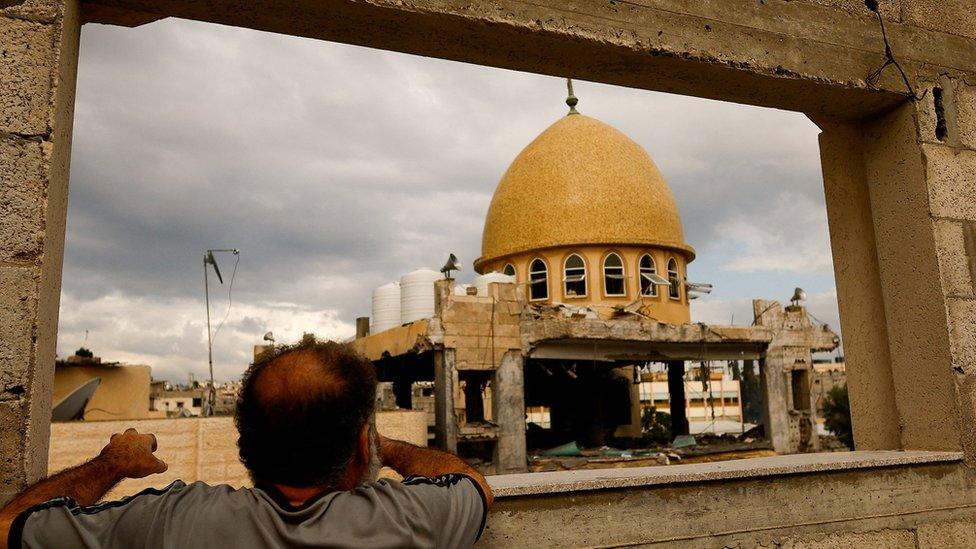
A BBC correspondent said the blackout would make it difficult to get information about what was happening in the war
Mobile phone and internet services have gone down across the Gaza Strip due to a lack of fuel for back-up generators, Palestinian telecoms companies say.
Telecom firms Paltel and Jawwal said all energy sources sustaining their networks were depleted, and an internet monitor confirmed a major outage.
Israel has blocked all but one delivery of fuel to Gaza since the start of its war with Hamas five weeks ago.
The UN said a blackout could jeopardise civil order and undermine aid efforts.
"We regret to announce that all telecom services in Gaza Strip have gone out of service as all energy sources sustaining the network have been depleted, and fuel was not allowed in," Paltel said in a statement on Thursday afternoon.
At the same time, internet observatory NetBlocks said live metrics showed Gaza was "in the midst of a major internet outage", with telecom services likely to be unavailable to most residents.
Allow X content?
This article contains content provided by X. We ask for your permission before anything is loaded, as they may be using cookies and other technologies. You may want to read X’s cookie policy, external and privacy policy, external before accepting. To view this content choose ‘accept and continue’.
Israel launched a major military campaign in the Gaza Strip to destroy Hamas, which it considers a terrorist group, in retaliation for the 7 October cross-border attack by hundreds of gunmen. At least 1,200 people were killed in Hamas's assault on Israel and about 240 others were taken hostage.
Since Israel started its counterattack, Gaza's Hamas-run health ministry has said 11,400 people have been killed in the territory and the United Nations has warned of a "humanitarian disaster".
The Israeli government has defended blocking fuel deliveries during its campaign, saying it is concerned that Hamas could steal fuel and use it for military purposes.
One tanker carrying 23,000 litres of diesel crossed from Egypt on Wednesday, but Israel restricted its use only for the refuelling of UN aid lorries.
Other key services have already had to shut down because of similar issues. This includes hospitals, water pumps, desalination plants, sewage treatment facilities and bakeries.

More on Israel-Gaza war
Follow live: Latest updates
From Gaza: BBC goes inside Al-Shifa hospital with the Israeli army
From Israel: Hostages' fates haunt Israel as Gaza war intensifies
Explained: The faces of hostages taken from Israel

The BBC's Rushdi Abu Alouf, who is in the southern city of Khan Younis, confirmed that all communications were down across Gaza on Thursday night.
He said it would now be extremely difficult to get any information about what was happening on the ground elsewhere, particularly in places like Al-Shifa Hospital in Gaza City, where Israeli forces were carrying out an operation for a second consecutive day.
Before the start of the blackout, a journalist trapped inside the complex had told him by phone that troops were storming all of the hospital's departments and "shooting in all directions". Our correspondent has been unable to re-establish contact since then.
The head of the UN agency for Palestinian refugees, Unrwa - which runs the largest humanitarian operation in Gaza - said he feared the blackout could cause a further breakdown of civil order.
"These are signs of a situation when you have a blackout and you cannot communicate with anyone anymore... that triggers and fuels even more the anxiety and the panic," Philippe Lazzarini, the UN leader, told a news conference in Geneva.
"This can provoke or accelerate the last remaining civil order that we have in the Gaza Strip. And if this completely breaks down, we will have difficulties to operate in an environment where you do not have a minimum of order."
Watch: The BBC team's access to Al-Shifa hospital was limited by the Israel Defense Forces and they were not able to speak to doctors or patients
Human Rights Watch said on Wednesday that a prolonged communications blackout could "provide cover for atrocities and breed impunity while further undermining humanitarian efforts and putting lives at risk".
Mr Lazzarini also said that he believed there was a "deliberate attempt to strangle" Unrwa's work in Gaza, warning that the agency might have to entirely suspend its operations if its fuel supplies ran out.
Unrwa, which is hosting 813,000 displaced people in its facilities, says it needs at least 160,000 litres of fuel every day to maintain its basic operations.
"If the fuel does not come in, people will start to die because of the lack of fuel," Mr Lazzarini warned.
"Exactly as from when, I don't know. But it will be sooner rather than later."
The head of the UN World Food Programme meanwhile said that supplies of food and water were "practically non-existent" and that "only a fraction of what is needed is arriving through the borders".
"With winter fast approaching, unsafe and overcrowded shelters, and the lack of clean water, civilians are facing the immediate possibility of starvation," Cindy McCain warned.
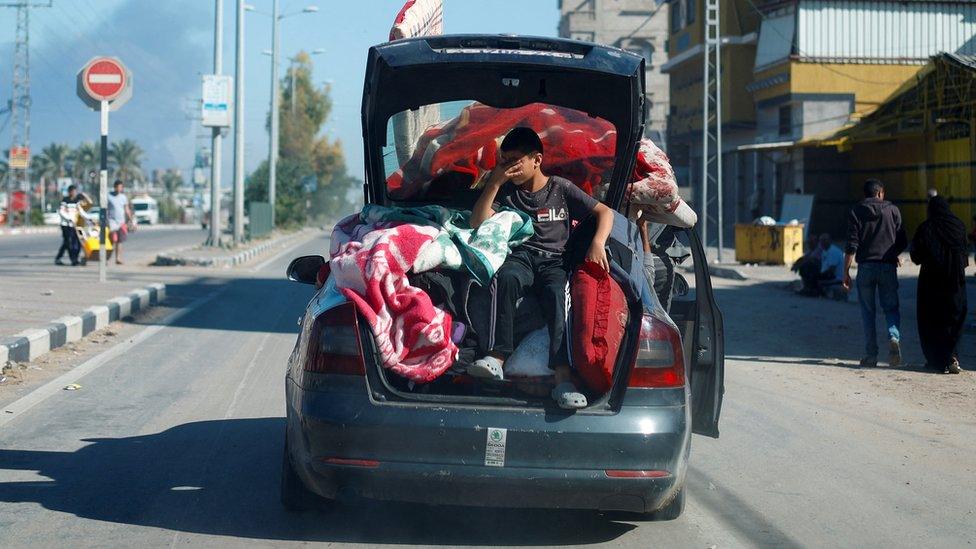
An estimated 1.5 million Palestinians have been displaced by the conflict
But a spokesman for the Israeli defence ministry body overseeing policy for the Palestinian territories, Cogat, told the BBC: "As far as I know, there is no lack of food and no lack of water in Gaza."
Col Moshe Tetro said Israel was fulfilling its obligations to facilitate the delivery of aid and that the number of lorries crossing from Egypt was increasing every day. The UN says 1,139 aid lorries have entered since 21 October, compared to about 500 each day on average before the war.
Col Tetro also stressed that Israel was doing everything it could to reduce civilian casualties, including by telling residents in the north of Gaza to flee southwards for their own safety as it focuses its air and ground assault on what it sees as Hamas's stronghold.
Many of the 1.5 million displaced people have fled to Khan Younis, where the pre-war population of 300,000 has tripled.
On Thursday, there were reports that Israeli forces had dropped leaflets urging people to evacuate four towns east of the city - Bani Shuhaila, Khuzaa, Abasan and Qarara - where tens of thousands of people have been sheltering.
An Unrwa spokeswoman said the south had "not been safe at all", and an expansion of Israel's ground assault into the region would be bad news.
Related topics
- Published16 November 2023
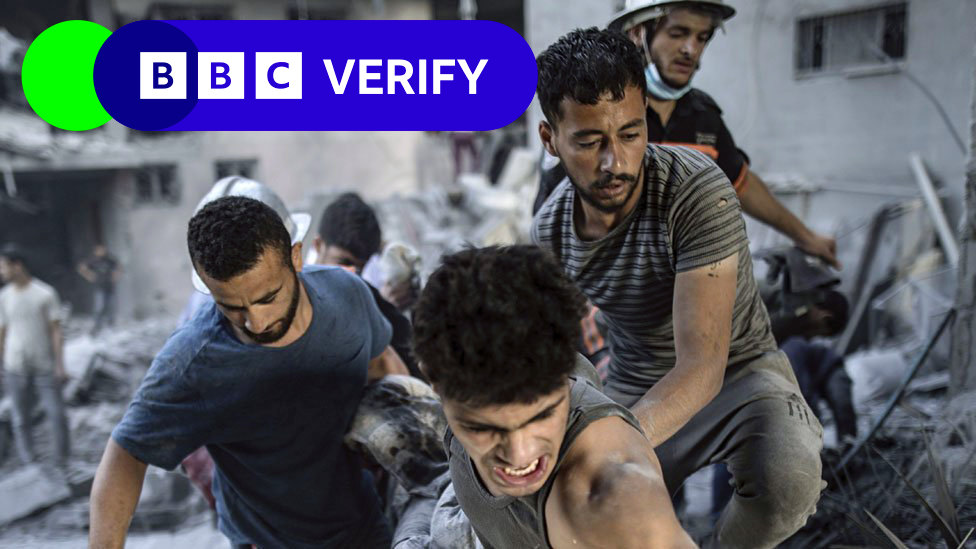
- Published15 November 2023
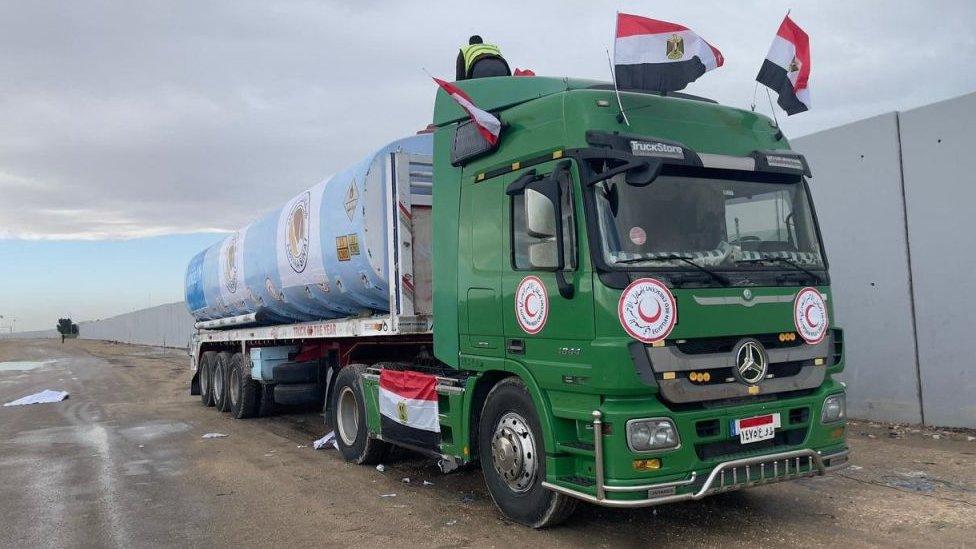
- Published15 November 2023
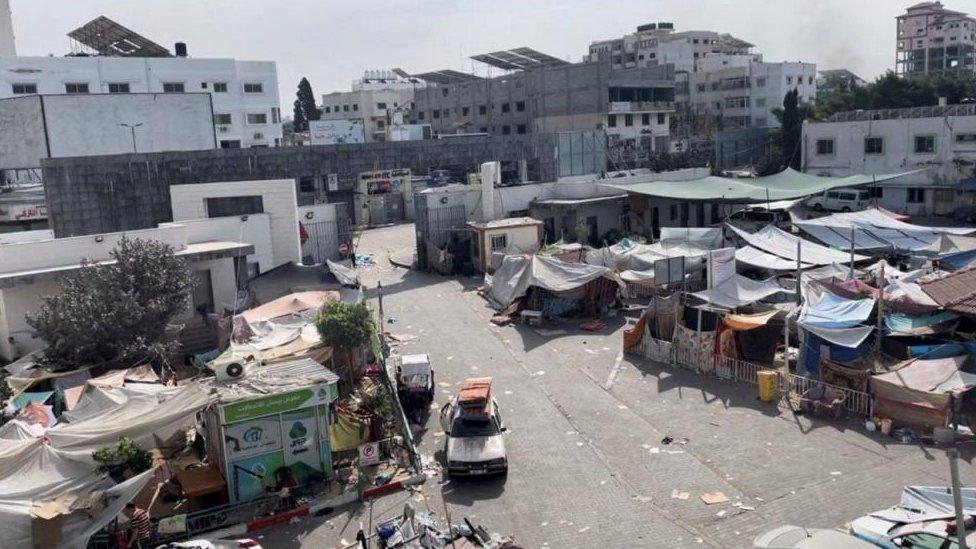
- Published15 November 2023
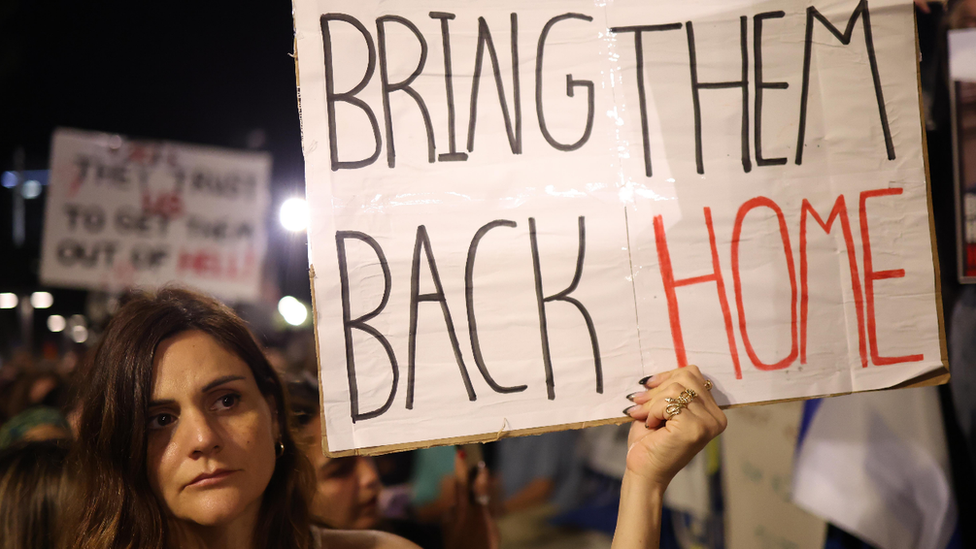
- Published14 November 2023
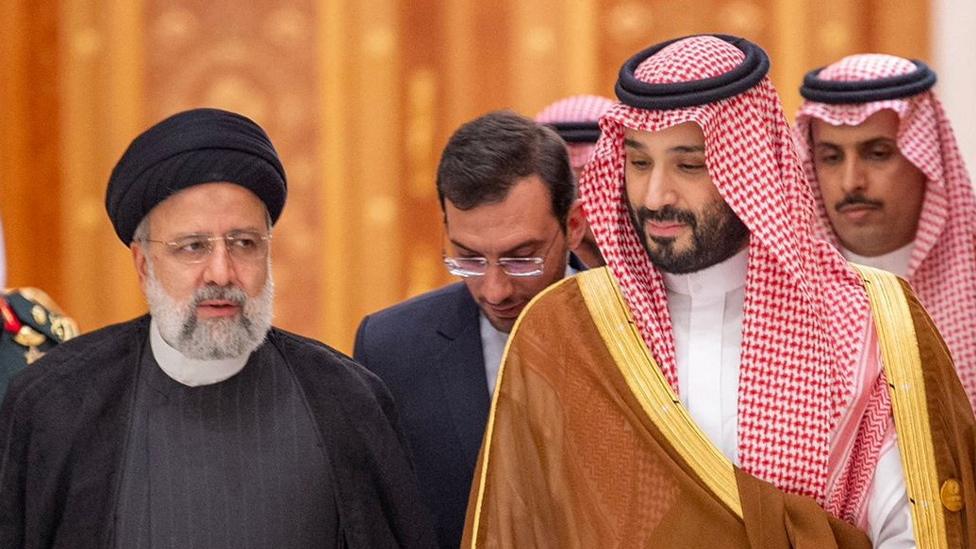
- Published14 November 2023
